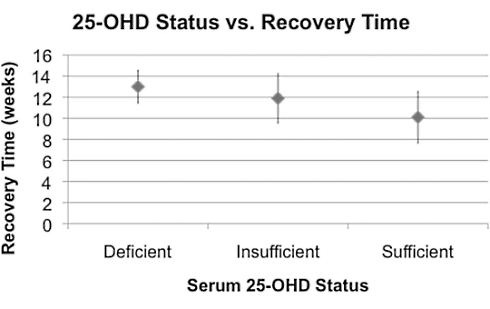|
Definition: "An ergogenic aid is any substance or phenomenon that enhances performance "
|
|
||||||||
06.06.2023 |
|
|
With or without hydrocortisone, supplementing with vitamin D reduces eczema
According to a British meta-study, supplementation with 1600 IU or 40 micrograms of vitamin D per day reduces eczema. According to a small trial from Egypt, this dose enhances the positive effect of a gel containing the mild corticosteroid hydrocortisone.
Meta-study
These studies showed that people with eczema tended to have lower vitamin D levels than those without eczema. The Brits additionally found 3 trails in which eczema patients received vitamin D. This reduced the severity of their eczema by just over 20 percent.
Click on the figure below for a larger version.
Trial
To answer this question, they had about eighty eczema patients aged 5-16 years rub their eczema with an ointment containing hydrocortisone twice a day for 12 weeks. While half of the subjects took a placebo, the other half took a supplement containing 1600 IU or 40 micrograms of vitamin D.
By the way, most subjects had low vitamin D levels. Out of every 5 subjects, only 1 had an adequate vitamin D status.
As you would expect, in the supplementation group, vitamin D levels rose. When the 12 weeks were over, more than 90 percent in that group had good vitamin D status. There was a decrease in eczema in both groups, but this decrease was greater in the vitamin D group.
Mechanism
Another possible mechanism of action is that vitamin D improves the structure of the skin, reducing the impact of substances that irritate the immune system.
Source: More: Archives:
|
|
||||||||||||||||








